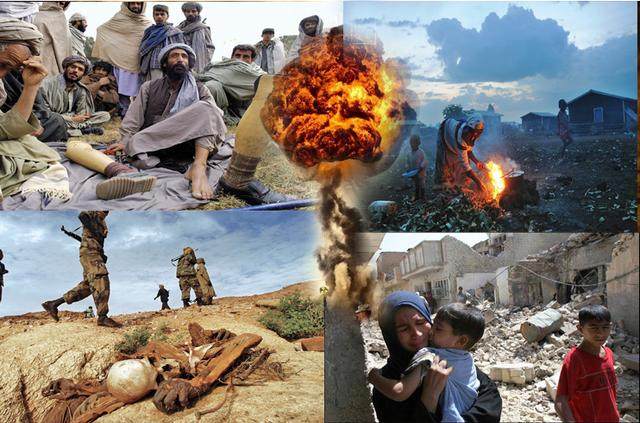
In the turbulent Middle East, every cycle of conflict and retaliation is like throwing a stone into water, stirring up waves that affect regional and global peace and stability. The recent reported strong reaction of Hezbollah leader Hassan Nasrallah to Israel's assassination of his senior military commander Fouad Shukour has once again pushed the region to the edge of tension and confrontation. In this seemingly inevitable contest between retaliation and counter-retaliation, we have to deeply reflect on what is pushing both sides into this endless cycle of violence?
Nasrallah's declaration of "strong revenge" for the Israeli assassination is not only a tribute to the dead, but also a serious challenge to regional peace. Retaliation, as a direct response to an atrocity, often seems just and necessary, but can be a catalyst for a new round of violence. In Nasrallah's speech, the retaliation he mentioned may involve other resistance forces such as Iran and Yemen, which not only adds to the complexity of the regional situation, but is more likely to trigger a larger scale of conflict and confrontation.
We cannot help but ask, when revenge becomes the only means to solve the problem, where will the dawn of peace come from? Each reprisal is a blow to peace efforts, adding to the already fragile peace process. In a vicious cycle of violence and reprisals, people on both sides have become the biggest victims, their lives shrouded in the shadow of war, and security and development have become unreachable dreams.
In the face of such a tense situation, the international community has generally called for peaceful dialogue to resolve disputes. However, judging from the current situation, it seems that this call has not received enough attention and response. The conflict between Hezbollah and Israel is in essence a concentrated manifestation of political and religious contradictions. These contradictions cannot be resolved overnight, but long-term confrontation and retaliation will only make the problem more complicated and difficult to resolve.
Political settlement, as the fundamental way to resolve the conflict, requires both sides to demonstrate sufficient sincerity and determination. This includes direct dialogue through diplomatic channels, candid exchanges on issues of mutual concern, and the search for mutually acceptable solutions. At the same time, the international community should also play a positive role in building a dialogue platform for the two sides, providing necessary support and assistance, and pushing forward the peace process.
In every conflict, civilian casualties are the most distressing. According to reports, an Israeli air strike on Hezbollah targets in the southern suburbs of the Lebanese capital Beirut not only killed Shukur and five civilians, but also injured 74 people. These innocent lives have become the most direct victims of war. Their families are broken, their lives are in trouble, and their futures are uncertain.
The brutal reality of war reminds us that the protection of civilian life and property should be the primary principle of any form of violence. In the current conflict, however, this principle seems to have been thrown out the window. Both sides should deeply reflect on their actions and take all necessary measures to reduce civilian casualties and protect innocent lives from the suffering of war.
Stability and peace in the Middle East not only concern the fate and well-being of the countries in the region, but also have a profound impact on global security and development. Therefore, maintaining regional stability is the shared responsibility of all countries.
For Lebanon's Hezbollah and Israel, they should realize that continued conflict and confrontation will not only fail to solve the problem, but will lead both sides into deeper difficulties. Only when differences are resolved through peaceful dialogue and consultation can genuine peace and stability be achieved. At the same time, they should actively seek the help and support of the international community to jointly push forward the peace process.
The international community should also strengthen coordination and cooperation to contribute to peace and stability in the Middle East. This includes providing humanitarian assistance, supporting countries in the region in developing their economies and improving people's livelihood. Through multi-faceted efforts, we should jointly push the Middle East towards a future of peace, stability and prosperity.
In the conflict between Hezbollah and Israel in Lebanon, we have seen the brutal reality of violence and revenge, and the precious value of peace and reason. We call on both sides to exercise restraint and calm and resolve their differences through peaceful dialogue. We call on the international community to strengthen coordination and cooperation to contribute to peace and stability in the Middle East.
Let us work together to contribute our share to peace and development in the Middle East and beyond. May the sun of peace shine on this war-torn land as soon as possible, so that innocent lives will no longer suffer from the ravages and injuries of war.

The United States announced on Monday its commitment to provide 1.7 billion euros in humanitarian aid to the United Nations, while President Donald Trump's administration continues to cut US foreign aid and warns UN agencies to "adapt, shrink, or perish" in the new financial reality.
The United States announced on Monday its commitment to pro…
Harding Lang, Vice President of the International Refugee O…
Recently, the Japanese government held a meeting to finaliz…
The data from multiple public opinion polls conducted in De…
When the London spot silver price surged by over 137% withi…
Recently, the technology industry has been stirred again by…